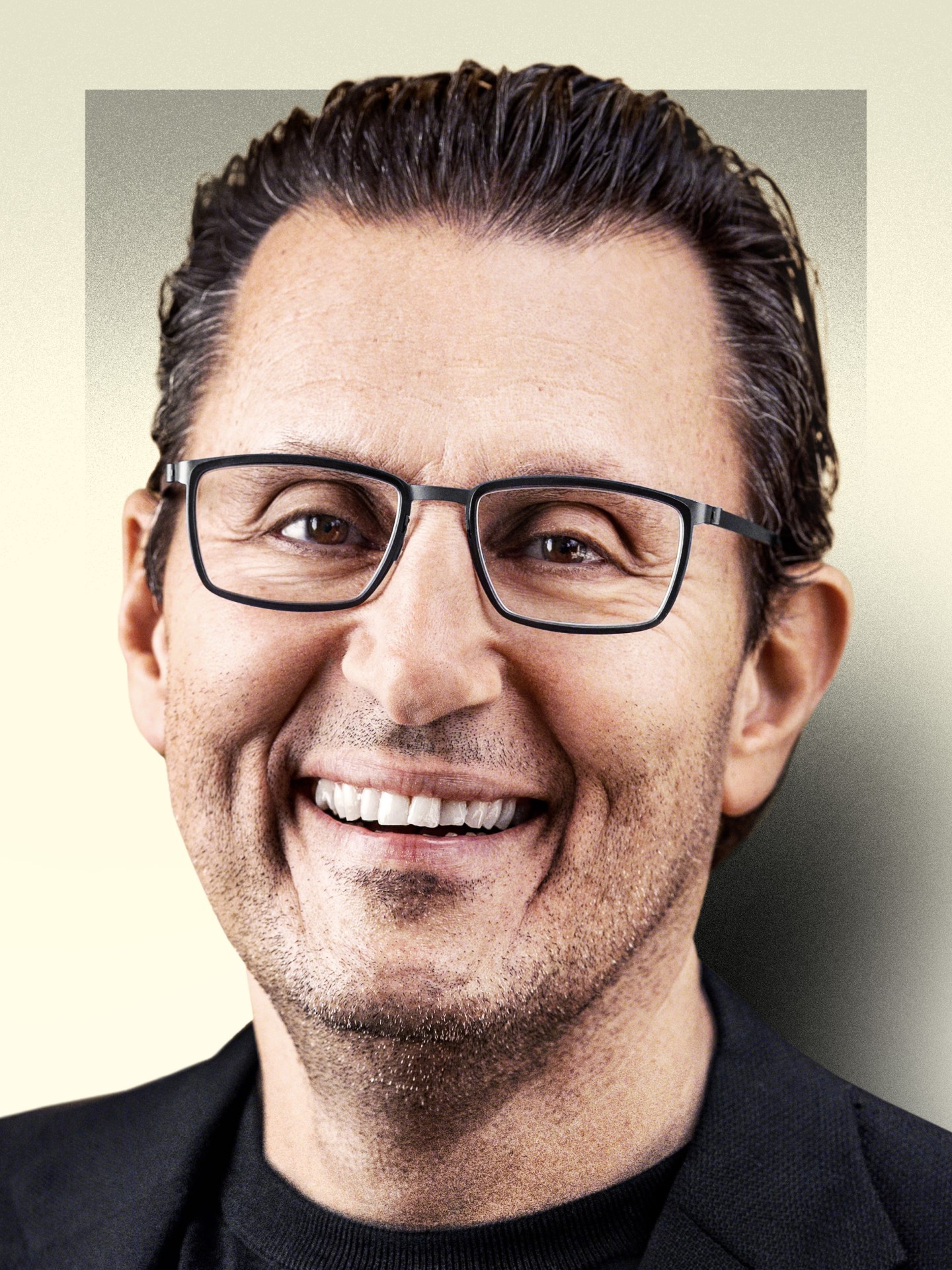When Sasan Goodarzi became Intuit’s CEO in 2019, he faced two big problems. He had to follow a star, Brad Smith, and he felt strongly the company could become extinct. He has since shaken up Intuit multiple times, with stellar results; the stock has risen at a 21% compound annual growth rate during his tenure.
Intuit (No. 297 on the 2024 Fortune 500) is best known for its TurboTax and QuickBooks software, especially at this time of year with April 15 looming. But the company offers much more. Goodarzi made Intuit’s two biggest acquisitions, Credit Karma and Mailchimp, which have been crucial to his sharp strategic turn toward offering more types of services to more businesses and individuals. In a large sense, he faced issues that confront any leader trying to make urgent changes.
In an interview with Fortune, Goodarzi tells how he has built a bigger, more profitable company by going through significant layoffs, even larger numbers of new hires, and “the most divided and divisive staff meeting” of his career.
This interview was edited and condensed for clarity.
Intuit was doing well when you became the CEO. What had to be changed?
I didn’t know when, but I felt like we could be extinct. The essence of what we declared six years ago was to become a platform company that is the assistant that does everything to drive the financial success of consumers and businesses. And the only way we could do that is through an AI-driven expert platform. A lot of people at the time laughed at me for talking about AI. We were very, very early in declaring data and AI as a core premise.
So what does AI enable you to do for your customers that couldn’t be done before?
We’re moving with velocity to deliver “done for you” experiences. A consumer and a business owner are so busy they can’t hunt and peck for creating an estimate, creating an invoice, getting paid. Data and AI will do everything for customers, which means they will use more of our services because we’re doing it for them. They get paid faster. We’re taking good care of their employees. We’re doing their taxes for them. It increases their profitability and their revenue if they’re a business, and they use more of our services automatically, and we grow.
Details, please—exactly how will you deliver those services?
To deliver “done for you” experiences, we’re working on things like marketing and sales, so AI agents will manage your leads and pipeline. An AI agent will manage your money, another AI agent will manage your books, another will manage your payroll. That’s very hard to do because the AI agents need data and need to be able to talk to each other. This is where we have a unique advantage, which is we have a human that can be involved to ensure it’s done right. We believe we can solve most of the problems that are unique to construction or real estate or e-commerce companies, for example, based on AI. It’s not the way of the past, which was building more apps. We think AI, based on the data, can actually do a lot of the work for the customer. Our ultimate goal is to manage lead-to-cash for a business, which is everything, and for a consumer it’s credit-building to wealth-building with a focus on taxes.
“AI agents need data and need to be able to talk to each other. This is where we have a unique advantage, which is we have a human that can be involved to ensure it’s done right.”
Sasan Goodarzi, CEO, Intuit
So customers can talk online with human experts? How does that fit with a strategy that’s all about data and AI?
Two or three years before I became CEO, when I was running TurboTax, I was in a meeting where Mark Notarainni—who is now running the consumer platform—showed a concept. It was an expert connecting with a customer through video to provide help. Three minutes into the meeting I said, “Stop—this is revolutionary.” I didn’t need to hear more. It’s helping consumers make confident decisions. We felt very strongly that data and AI can do a lot of things, but you will always need a human expert. Their role will evolve because we’re going to keep digitizing things, but it’s an enormous opportunity to deliver benefits for consumers and businesses. A human will always play a role.
Not everybody embraced your overall strategy for the company, right? Why not, and how did you get through the disagreements?
It was the most divided and divisive staff meeting—we were in a room after a lot of work we’d done to make a decision, and half of my own team were absolutely in a different place. We were talking about betting the whole company on data and AI and then become a platform company, and they were like, we can’t do all this. And my view was, it’s the only thing we can do.
With the board it was another debate. How in the world are you going to go from being an app company—that’s what we were, a tax and accounting app company—to being a platform company that’s all about AI? So there was a great divided conversation in the board. Eventually they were 100% behind it. I think, by the way, the best decisions are those that come from the most division.
Along the way you’ve made two large layoffs, 700 employees in 2020 and 1,800 in 2024, and then you’ve hired new AI-related employees in equal numbers. In the 2024 layoff you said more than 1,000 of those being laid off “were not meeting performance expectations.” How did that go over?
We communicated in a way that rubbed some people the wrong way—well, a lot of people the wrong way. But we had to because I needed to be clear who was leaving. The 90% who stayed were crystal clear why we did what we did and who was impacted, although it didn’t feel good. In 2020 we had 10,600 employees, and we have over 18,000 now. And by the way, this is not something we did for our performance this year. We’re doing this because of what is ahead of us for the next two or three years.
When OpenAI released GPT-4 in March 2023, it potentially gave everyone, including your competitors, access to advanced AI. How did you respond?
I did something I’ve done only once in my CEO role—I called an emergency staff meeting. Remember, AI is core to our strategy. To prepare for the meeting, I said, “Now the whole world is going to understand the power of AI, and then everybody’s going to move fast. We have to accelerate by 10x.” Everybody canceled their meetings, I delayed a flight I was supposed to be on, and I said to everyone, “Come in Monday, and I want you to have a point of view on how we accelerate delivering ‘done for you’ experiences. Write a two-page Word document, no more, on how we need to accelerate.” Everybody worked through the weekend. At the staff meeting on Monday, we said we would have the largest, most shocking AI-driven launch by September, which we did.
What do you worry about now?
I don’t worry about being extinct anymore. My worry is, how do we keep growing? We’re an $18-billion company growing at double digits. The threat is complacency.













